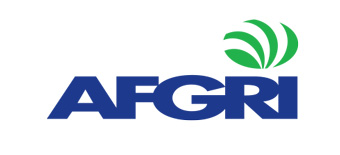NAMPO, 15 May 2019 – With climatic changes worsening and the economy under strain, farmers across South Africa are having to do more with less, with many struggling to make ends meet. During the past two years alone, farmers have had to contend with drought, hail, foot and mouth disease, armyworm invasions and wildfires, to name but a few. While several funds have been established in support of local farmers, AFGRI’s Support Fund offers a significant beacon of hope to agricultural communities across South Africa.
The Fund, established in February this year, offers financial support to beneficiaries in the agricultural sector, focusing on those operating within the AFGRI ecosystem and geographic areas. However, recognising that funds such as these need to be sustainable to make a real difference, AFGRI, apart from committing an annual donation of a minimum of R3 million, will make use of a host of events, including golf and farmers days as well as ad hoc opportunities, to raise additional money for the Support Fund.
It also is accepting contributions from external individuals and organisations, and will, in addition, continue to have an account into which farmers are able to donate grain for sale, the proceeds of which will be transferred to the Fund account.
When asked what drove the establishment of the Fund, AFGRI’s CEO Tinus Prinsloo explains: “We know all too well the publicised issues and get asked by so many to assist. We want to ensure that support reaches those in need as much too often donations don’t reach those who truly need them.”
AFGRI’s CFO Jacob de Villiers, who was instrumental in setting up the Fund, says that so far AFGRI has been inundated with requests for assistance, showing just how much support South African farmers and those involved in agriculture-related industries need currently, and validating that the Fund is serving the purpose it was created for.
“Many of the requests have been from new era farmers asking for help in starting farming operations, or for access to finance, training, and equipment. These have been redirected either to Lemang Agricultural Services, which focuses on developing black farmers ready to take the next steps to full commercialisation, or to Harvest Time Investments, which focuses on small new era farmers, for further evaluation so that we can offer support through the correct channels. However, a large portion are coming from farmers who really need a helping hand.”
Ten requests from across the country meeting the Fund’s criteria have already been put before the executive management team, with a number of these being approved for funding in the amount of R400,000. “We have already started engaging with the beneficiaries, whose requests ranged from assistance in providing additional security measures on farms to money to repair hail damage. One project involves assisting farmers in the Middelburg area who are sending animal feed to farmers in need in the Northern Cape.”
De Villiers adds that a further R350,000 was raised at a recent AFGRI golf day. “We have just received confirmation that we will be hosting another golf event in the Western Cape towards on the end of 2nd of August, and are already receiving bookings for this, which is so encouraging. We will of course continue to leverage other events and initiatives to raise money for the Fund.”
More important though, says de Villiers, is the fact that AFGRI has started engaging the farming community to get involved and contribute, so that farmers support farmers. An example of this working well is when the proceeds from the sale of grain is made available by those farmers willing to assist. “This money can be contributed to the Fund, while grain itself can also be donated for sale.” He estimates this could raise another R500,000 during the upcoming harvest time. “Of course, we will also look to assist farmers who have set up their own help initiatives to grow critical mass, as is the case with the one project we will now be helping to fund.”
Knowing the power of the media, AFGRI is looking at bringing a local media partner on board to assist its efforts in creating awareness of the Support Fund, with de Villiers saying that AFGRI would soon be in a position to divulge this information. “We are, in all honesty, blown away by the response to the Fund – this truly shows that setting it up was the right thing to do at the right time and we are very proud and excited to be making a real difference to the lives of those in need through it.”
Another factor in ensuring sustainability is sound management and governance. De Villiers, along with AFGRI Group senior executives, Marion Shikwinya and Ross Simmonds, are the directors of the Fund and will be responsible for the evaluation and disbursements of requests received. Furthermore, AFGRI is committed to and follows strict corporate governance procedures. “Both the impact and the measurement of the difference we are making will be noted with the purpose of continual improvement to safeguard a growing and sustainable Fund,” says de Villiers.
“This will ensure that financial support is available to all involved in agriculture in the long-term. In this way AFGRI will continue to make a positive impact on the agricultural sector in our country, just as we have for the past nine decades and more.”
Moreover, AFGRI’s assistance to farmers is not a recent development but has been part of the company’s ethos since it was established over 95 years ago. More recently, in 2016 during one of the worst droughts ever recorded in South Africa, AFGRI donated R5 million in drought aid to farmers. It also offered a zero increase on storage fees for a period, knowing that these gestures would assist farmers caught in the grips of the drought.
Similarly, in 2017 AFGRI partnered with farmers in the Free State and the KwaZulu-Natal Midlands, as far afield as Bothaville, Koppies, Danielsrus and Tweeling, to facilitate a process through which large-scale hay donations could be sent to farms in the Thornhill district in the Eastern Cape. The donation amounted to more than a
1,000 round bales. AFGRI Grain Producers further donated maize for trading, using the proceeds to support the project.

